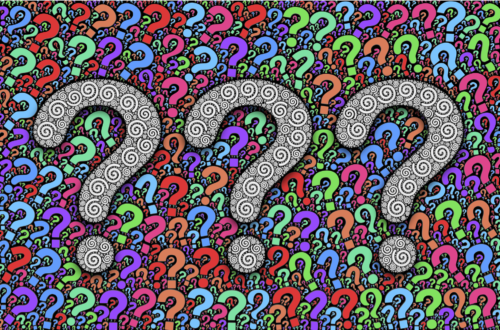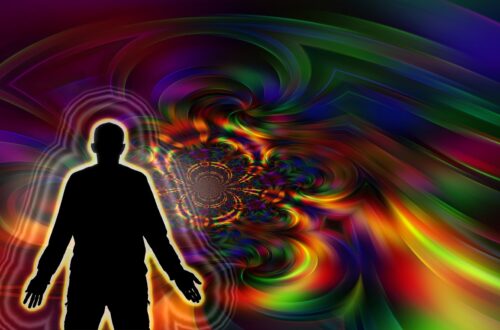
The Hero’s Journey: The Buddha’s Four Noble Truths
In my last two articles I have been exploring the Hero’s Journey. In the first article (linked here: Purpose), I laid out a three step version of Campbell’s Hero’s Journey motif and gave a general overview of it. In my second article (linked here: Garden) I applied the three steps to “The Garden of Eden” story and Plato’s “Allegory of the Cave”.
In this article I will apply it to the Buddha’s “Four Noble Truths”. But before I do that, I want to very briefly review the three steps in the Hero’s Journey motif for those who haven’t read either of the first two articles. If you have, then feel free to skip this part and go straight to the Buddha’s Four Noble Truths.
Brief Review
Home Consciousness is the first stage. It represents our basic worldview and values that we inherit (download) from our parents, older siblings, friends, other relatives, social/traditional media and so on. It is so much information that most of it goes into our unconscious, programming our beliefs and actions. At this stage we are pretty much stimulus/response robots, though we do have the illusion we are free thinkers.
Departure is the second stage. Normally it takes something catastrophic to shake us out of our trance. It could be something personal like the loss of a loved one, or something social like a natural disaster, but whatever it is, it has to be powerful enough to shake loose our old programming and force us to dig deeper to find succor and meaning.
Return is the last stage. Here, after searching for some time, we begin to get a deeper sense of our Self. This propels us to go back into society as a new person with a more profound sense of who we are and what our purpose is.
The Buddha’s Four Noble Truths
Now, let’s apply this three-step motif to the Four Noble Truths of Buddhism.
Home consciousness, in this case, is our ignorance of the first two Noble Truths.
The First Noble Truth states that “Life is Suffering”
The Second Noble Truth says that “The Cause of Our Suffering is our Selfish Desires, our Ego, and our Attachments to the Things of this World.”
This is the stage of Home consciousness where we unconsciously live our lives controlled by our egos, our selfish desires, and our attachments.
When things go wrong, we suffer. We generally blame others for our suffering—our girlfriend or boyfriend, our parents, our siblings, our boss at work, our job, our teachers, and so on. Any and everything else is the cause of our problems. We think that if other people would just get their act together and stop making us suffer, all would be fine.
Eventually, all this suffering takes a toll and if we are lucky, (this is where the catastrophic event comes in) we may finally realize that we, and not others, are the cause of all our misery. We can’t control others, but we can control ourselves.
In addition, we realize that everything and everyone in our lives will one day be gone. We begin to understand that when we attach ourselves to temporary things, and everything in this world is temporary, that this will inevitably cause suffering when we lose them.
Once we understand this, the focus shifts from outer causes of suffering to inner causes, and we ask, “How can I stop myself from suffering?” This leads us to the final two Noble Truths.
The Departure: When we finally get so sick of suffering and we can’t take it anymore, we begin to seek its causes. This is the departure stage, which again is the journey inward in search of the real cause of suffering.
The Third Noble Truth says: The Way to Eliminate Suffering is to Overcome our Desires, Self-Centeredness, and Attachments. If those are the causes of suffering, then removing them will end suffering.
The question then becomes, “How to do that?”
The Fourth Noble Truth is the answer. It says: We Must Follow the Noble Eightfold Path, which means we need to have a complete change of perspective. In short, we have to realize that suffering is the problem and if we want to be liberated from it, we have to discover its causes.
Everything revolves around this change. We have to change the way we talk and act. We have to be mindful when our words or actions hurt people, and we have to look inside and see why we sometimes lash out. We have to cultivate an awareness of that deep inner still point of consciousness and operate from there.
We have to be patient and forgive ourselves and others when we stumble on our paths. Hopefully, we can get a job that is in harmony with this path. And finally, we have to think about and meditate on the path incessantly with a deep mind. This has to take precedence over everything else in our lives.
Detachment Leads to More Intimacy
This journey will not be easy. But if we stay with it, an awareness and sense of self emerges, and we can transcend our egos and self-centeredness. We become less attached to things. A lot of people say, “I don’t want to be more detached from friends and family. That seems cold.” But looked at correctly, it’s not.
In our home consciousness, we tend to take the people in our lives for granted. It is why we can be mean to them and get into vicious arguments with friends and family. We do that because we don’t realize at the moment that our time with them on this Earth is very short in cosmic terms. We unconsciously assume these people will always be there for us, so we take them for granted.
That is why when someone close to us dies suddenly and unexpectedly we very often feel so much pain. We think about all the bad things we said and did to that person, feeling great remorse. Alternatively, we may regret never telling them how much we love them, and realize that now it is too late to make amends.
Had we instead realized our time with them was short, and they could be gone at any minute, we would have treated them much better, and been more appreciative of their presence in our lives. If that is the case, when they do die, we will suffer less, and it will be of a different order because it will not be filled with guilt and regret, feelings that could haunt us for the rest of our lives.
So rather than making us more distant and cold, losing attachment allows us to become even closer to our loved ones. We will have developed a much stronger sense of our self and understood more clearly the impermanence of everything.
The Return: When we finally reach that level of awareness, then we can return to society as fulfilled humans, knowing who we are and what our purpose is.
So as you can see, the Buddha’s Four Noble Truths also carries out the three-step Hero’s Journey motif for discovering our self and our purpose. We do all this in harmony with the creative potential and urge of the universe. When we do this, we might even agree with Socrates who said, that the person who knows themselves has nothing to fear, not even death.
To learn more about the magic of the universe: Click this link: The Magical Universe.
Image by Karin Henseler from Pixabay




